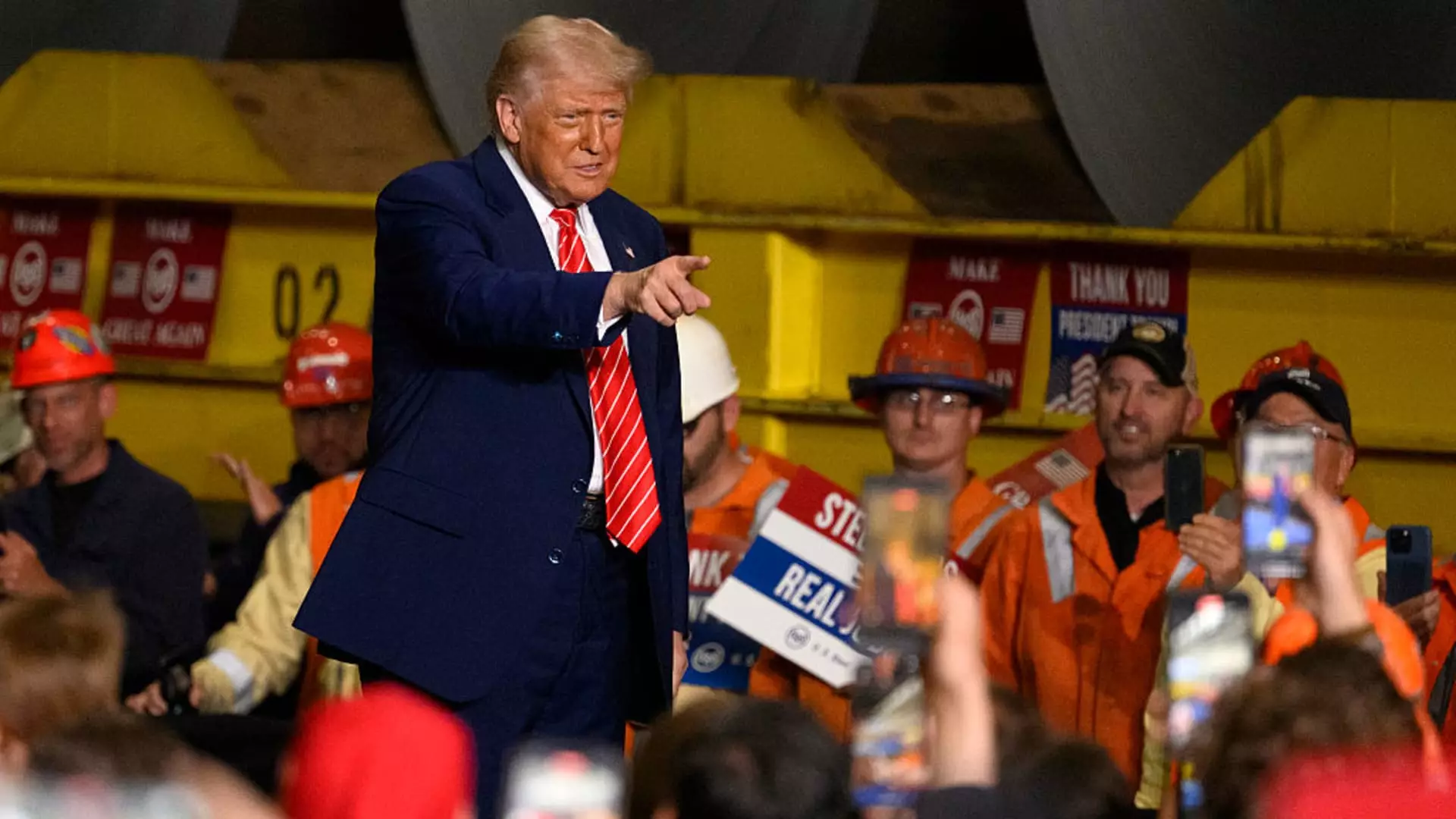The recent decision by President Trump to escalate tariffs on steel imports to an unprecedented 50% is not just a policy choice; it’s a perilous plunge into a trade war that threatens to disrupt global economic stability. Trump’s move, announced with much fanfare at a U.S. Steel rally in Pennsylvania, reflects a decisive shift in American trade policy, marked by a regrettable abandon of diplomatic negotiations. This glaring increase in tariffs risks not only the livelihoods of those in the steel industry but also reverberates through to sectors far beyond, raising costs for consumers and businesses alike across the Atlantic.
What is alarming about this decision is the context in which it is made. Tariffs are traditionally wielded as a tool to protect domestic industries, but the abrupt doubling of steel tariffs seems more like a populist gesture than a strategic economic maneuver. It reflects a troubling willingness to sacrifice long-term economic relationships and cooperative trade practices for short-term political gain. The European Union’s immediate condemnation is telling—it signifies a collective dismay among allies who are, quite understandably, wary of engaging in meaningful negotiations under such volatile conditions.
The Human Cost Inherent in Tariff Decisions
The implications of increased tariffs are not merely economic — they are profoundly human. Marty Warren, the National Director for United Steelworkers in Canada, articulated this reality succinctly when he remarked that “thousands of Canadian jobs are on the line.” This perspective rightly emphasizes the individuals and communities that depend on resilient trade relationships. When tariffs are raised, the risks cascade down through the supply chain, jeopardizing jobs not only in the steel industry but in all the sectors that rely on steel products, including construction and automotive manufacturing.
In a world where industries are so interconnected, the U.S.’s unilateral decision to raise tariffs places unnecessary strain on its Canadian partners and allies. The notion that manufacturers will stay untouched or that “there will be no outsourcing” is, at best, naïve and, at worst, disingenuous. Companies do not just absorb costs indefinitely, and the false rhetoric surrounding job retention does little to shield workers from economic realities. Instead, businesses may face the grim ultimatum of passing costs onto consumers or reconsidering their operational strategies altogether.
The EU’s Calculated Response: A Justifiable Countermeasure
In reaction to these North American tariff policies, the EU has signaled its readiness to impose countermeasures, which it had previously paused to foster space for dialogue. This calculated response highlights an essential principle in international trade: reciprocity. If the U.S. can operate unilaterally with heavy tariffs, then affected nations must defend their economic interests in a firm yet measured fashion. The EU’s spokesperson made it clear that should the U.S. not reach a mutually beneficial resolution, both existing and supplementary measures would take effect, essentially underscoring that retaliatory action is not merely an option but an expectation in contemporary trade relations.
Such a scenario flips the burden of negotiation squarely back onto the United States, posing a potent reminder that cooperative commerce benefits all involved. Instead of isolationist tactics, there’s a pressing need for the U.S. administration to engage in meaningful discussions that foster economic interdependence rather than dependency on tariffs.
Legal Troubles as Another Layer of Complexity
Adding further complexity to an already convoluted situation, the U.S. Court of International Trade recently challenged Trump’s authority to implement these tariffs, branding them as overreaches of presidential power. Although an appeals court has temporarily halted the court’s order, this legal turbulence signals a broader struggle within the U.S. administration regarding its trade strategy. The reliance on high tariffs to compel nations into renegotiation could easily become unsustainable, especially as judicial precedent begins to address the administrative scope of trade powers.
In summation, Trump’s heavy-handed tariff tactics expose a fraught intersection of domestic policy and international relations, stressing the importance of diplomacy over coercive economic measures. As political winds shift and global economic conditions evolve, one cannot help but wonder whether this current path will lead to a more secure economic future, or if it will provoke an ever-widening chasm between allies and adversaries alike. The stakes are high, and as history has shown, trade wars rarely end well.

